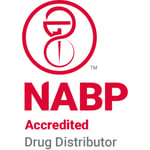In today’s health care environment, it’s important to ensure that patients get the best care possible. This can include spending time with the patient to understand his or her needs. It also includes prescribing, dispensing and administering the right drug in the right dose at the right time.
In recent years, hospitals and pharmacies have increasingly seen the benefits of unit-dose medications. However, this strategy has proven to be disruptive to many organizations that traditionally order bulk quantities of medicine and repackage them in-house.
In an outsourced repackaging scenario, a third-party expert completes the repackaging process on behalf of pharmacy staff. This helps ensure that medication is in the correct doses and ready to dispense — freeing up pharmacists and pharmacy technicians from this time-consuming task. This approach offers considerable benefits, not the least of which is cost savings.
We take a closer look at in-house packaging and how outsourced unit-dose packaging can help institutional pharmacies capture drug cost savings, improve patient safety and free up valuable staff time.
In-House Repackaging
To combat rising drug costs and ever-growing drug shortages and backorders, many hospital pharmacists purchase bulk quantities of medication. The pharmacy team then repackages the medication in-house. However, there are several processes and considerations which often cancel out the price-savings seen with bulk medication purchases:
- When repackaging in-house, there is specific equipment needed to meet certain quality standards. This translates to additional capital costs incurred by the pharmacy.
- In-house repackaging also requires increased pharmacy labor, requiring staff to now disperse medication AND package it into its correct doses. This additional time takes away from pharmacy staff focusing on patient care.
- In addition to quality standards, pharmacies also must ensure that they’re meeting the compliance rules put in place by regulatory agencies in the health care industry, including expirations dating constraints and preventing cross contamination.
Outsourced unit-dose repackaging offers a more efficient way of ensuring that patients receive the correct medicine dose, and that pharmacists and health care workers can spend more time on providing the best care possible.
Outsourced Unit-Dose Packaging with an Expert Partner
Outsourcing unit-dose packaging with an expert partner offers many benefits for a pharmacy and its team, as staff is no longer tasked with the time-consuming and expensive process of repackaging medication in-house. The pharmacy can still enjoy the cost-saving advantages of buying pharmaceuticals in bulk quantities — at current contract prices, on-formulary, with the wholesaler cost of goods applied. However, as opposed to separating this medicine into its individual doses in-house, the third-party expert — like Safecor Health — repackages it for the pharmacy.
These service providers leverage the latest, most advanced equipment for repackaging, ensuring they meet quality standards and compliance rules. At the same time, pharmacy staff can be sure that medication arrives in the correct individual doses, reducing the chances of error.
In addition to boosted safety standards, third-party expert repackaging partners also help pharmacies enjoy reduced costs in staffing, equipment and overall time spent packaging. What’s more, industry-leading providers like Safecor Health are fully equipped to repackage a wide range of drug formats, including oral solids and liquids, Schedule II-V and hazardous medications, and robot-ready pharmaceuticals, ensuring your pharmacy always has access to unit-doses of preferred treatments.
Contact us today to find out more about the path medication takes in a third-party repackaging scenario with a partner like Safecor Health.



